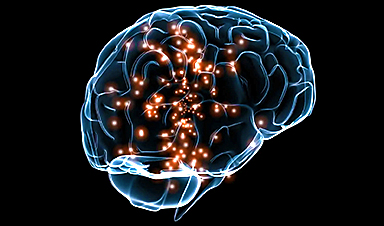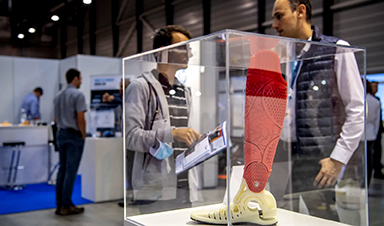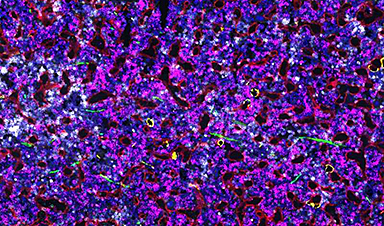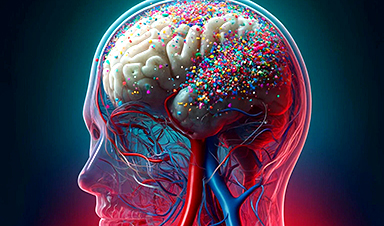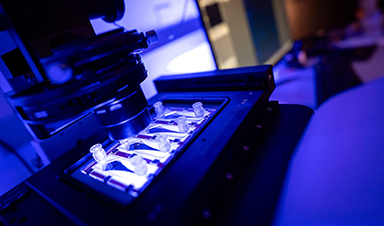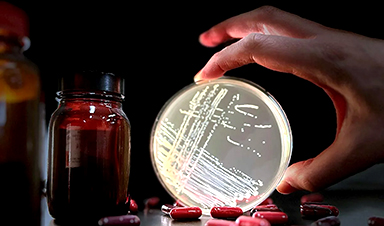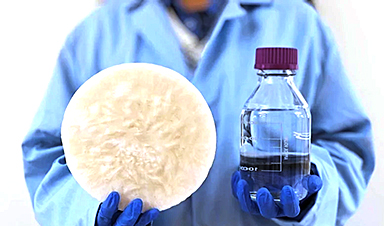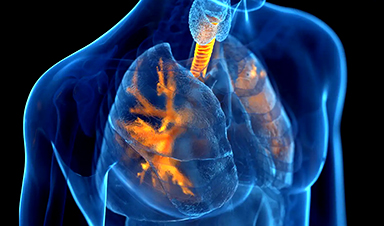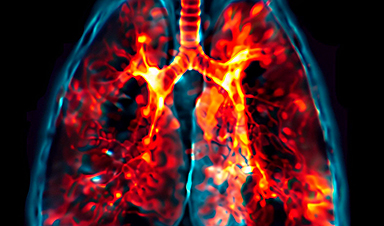Brain stimulation paired with a nose spray comprised of nanoparticles can increase recovery after ischemic stroke in an animal model, according to scientists from Xi’an Jiaotong-Liverpool University and other universities in China.
The nasal spray is a non-invasive means of delivering magnetic nanoparticles into the brain that, according to the research, can enhance the effects of transcranial magnetic stimulation (TMS).
TMS is a non-invasive brain stimulation technique that is now being utilized clinically or in clinical studies to cure neurological diseases such as stroke, Parkinson’s disease, Alzheimer’s disease, depression, and addiction.
After an ischemic stroke, rats administered a combination of nanoparticle and TMS treatment every 24 hours for 14 days had improved health, gained weight faster, and enhanced cognitive and motor abilities when compared to those treated with TMS alone.
During TMS therapy, an electrical current is passed through an electric coil positioned outside the skull, creating a magnetic field that activates brain cells by causing an additional electrical current inside the brain. However, the stimulation is often insufficient to penetrate far enough into the brain to reach the areas that require treatment.
From Impossible to Possible
The study solves a major question in nanomedicine: Is it possible to improve TMS by delivering nanoparticles into the brain non-invasively? Top experts have previously said that it was nearly impossible due to the blood-brain barrier. This physical barrier divides the brain from the rest of the bloodstream in the body.
The investigators overcame this by using a strong magnet near the head to guide the magnetic nanoparticles closer to the appropriate region.
We were able to overcome the blood-brain barrier and send enough nanoparticles into the brain to use in combination with TMS simulation to improve recovery from stroke. TMS devices are already used for the clinical treatment of neurological disorders but have severe limitations in terms of stimulation strength and depths of the brain they can penetrate.
Dr Gang Ruan, Study Corresponding Author, Xi’an Jiaotong-Liverpool University
Dr. Ruan says, “By non-invasively putting magnetic nanoparticles into the brain, we can amplify and enhance the TMS stimulation effects on neurons, making the treatment more effective. Showing it is possible to use nanoparticles in this way paves the way for medical applications of nanoparticles for other neurological disorders.”
Crossing Barriers
Since the iron oxide nanoparticles employed by the researchers are non-toxic and biodegradable, they are already being used to treat iron deficiency. The nanoparticles were also tweaked by the scientists by covering them with various non-toxic compounds.
The coating causes the nanoparticles to stick to the blood-brain barrier, increasing their chances of passing through it. Without this coating, the particles just bounce back from the barrier instead of crossing it. The modifications of the iron oxide particles also ensure that the nanoparticles can stick to the neurons and increase their responsiveness to TMS stimulation.
Dr Gang Ruan, Study Corresponding Author, Xi’an Jiaotong-Liverpool University
The safety of employing the modified nanoparticles in clinical studies must be evaluated, but they have the potential to be used in conjunction with TMS and other techniques such as brain imaging to acquire a better understanding of how the brain functions and enhance the treatment of neurological disorders.
Many scientists still think it is impossible to non-invasively send enough nanoparticles into the brain to affect brain function. Yet we have shown that it is possible. We combined the expertise on our team in four different disciplines, materials science, biophysics, neuroscience, and medical science, to push the boundaries of our knowledge and challenge what is currently thought in the field.
Dr Gang Ruan, Study Corresponding Author, Xi’an Jiaotong-Liverpool University
Journal Reference
Hong, Y., et al. (2022) Enhancing non-invasive brain stimulation with non-invasively delivered nanoparticles for improving stroke recovery. Materials Today Chemistry. doi.org/10.1016/j.mtchem.2022.101104.
News
Scientists Invent Plastic That Can Dissolve In Seawater In Just A Few Hours
Plastic waste and pollution in the sea have been among the most serious environmental problems for decades, causing immense damage to marine life and ecosystems. However, a breakthrough discovery may offer a game-changing solution. [...]
Muscles from the 3D printer
Swiss researchers have developed a method for printing artificial muscles out of silicone. In the future, these could be used on both humans and robots. Swiss researchers have succeeded in printing artificial muscles out [...]
Beneficial genetic changes observed in regular blood donors
Researchers at the Francis Crick Institute have identified genetic changes in blood stem cells from frequent blood donors that support the production of new, non-cancerous cells. Understanding the differences in the mutations that accumulate [...]
Shocking Amounts of Microplastics in the Brain – It Could Be Increasing Our Risk of Dementia
The brain has higher concentrations of plastic particles compared to other organs, with increased levels found in dementia patients. In a comprehensive commentary published in Brain Medicine, researchers highlight alarming new evidence of microplastic accumulation [...]
Baffling Scientists for Centuries: New Study Unravels Mystery of Static Electricity
ISTA physicists demonstrate that contact electrification depends on the contact history of materials. For centuries, static electricity has intrigued and perplexed scientists. Now, researchers from the Waitukaitis group at the Institute of Science and [...]
Tumor “Stickiness” – Scientists Develop Potential New Way To Predict Cancer’s Spread
UC San Diego researchers have developed a device that predicts breast cancer aggressiveness by measuring tumor cell adhesion. Weakly adherent cells indicate a higher risk of metastasis, especially in early-stage DCIS. This innovation could [...]
Scientists Just Watched Atoms Move for the First Time Using AI
Scientists have developed a groundbreaking AI-driven technique that reveals the hidden movements of nanoparticles, essential in materials science, pharmaceuticals, and electronics. By integrating artificial intelligence with electron microscopy, researchers can now visualize atomic-level changes that were [...]
Scientists Sound Alarm: “Safe” Antibiotic Has Led to an Almost Untreatable Superbug
A recent study reveals that an antibiotic used for liver disease patients may increase their risk of contracting a dangerous superbug. An international team of researchers has discovered that rifaximin, a commonly prescribed antibiotic [...]
Scientists Discover Natural Compound That Stops Cancer Progression
A discovery led by OHSU was made possible by years of study conducted by University of Portland undergraduates. Scientists have discovered a natural compound that can halt a key process involved in the progression [...]
Scientists Just Discovered an RNA That Repairs DNA Damage – And It’s a Game-Changer
Our DNA is constantly under threat — from cell division errors to external factors like sunlight and smoking. Fortunately, cells have intricate repair mechanisms to counteract this damage. Scientists have uncovered a surprising role played by [...]
What Scientists Just Discovered About COVID-19’s Hidden Death Toll
COVID-19 didn’t just claim lives directly—it reshaped mortality patterns worldwide. A major international study found that life expectancy plummeted across most of the 24 analyzed countries, with additional deaths from cardiovascular disease, substance abuse, and mental [...]
Self-Propelled Nanoparticles Improve Immunotherapy for Non-Invasive Bladder Cancer
A study led by Pohang University of Science and Technology (POSTECH) and the Institute for Bioengineering of Catalonia (IBEC) in South Korea details the creation of urea-powered nanomotors that enhance immunotherapy for bladder cancer. The nanomotors [...]
Scientists Develop New System That Produces Drinking Water From Thin Air
UT Austin researchers have developed a biodegradable, biomass-based hydrogel that efficiently extracts drinkable water from the air, offering a scalable, sustainable solution for water access in off-grid communities, emergency relief, and agriculture. Discarded food [...]
AI Unveils Hidden Nanoparticles – A Breakthrough in Early Disease Detection
Deep Nanometry (DNM) is an innovative technique combining high-speed optical detection with AI-driven noise reduction, allowing researchers to find rare nanoparticles like extracellular vesicles (EVs). Since EVs play a role in disease detection, DNM [...]
Inhalable nanoparticles could help treat chronic lung disease
Nanoparticles designed to release antibiotics deep inside the lungs reduced inflammation and improved lung function in mice with symptoms of chronic obstructive pulmonary disease By Grace Wade Delivering medication to the lungs with inhalable nanoparticles [...]
New MRI Study Uncovers Hidden Lung Abnormalities in Children With Long COVID
Long COVID is more than just lingering symptoms—it may have a hidden biological basis that standard medical tests fail to detect. A groundbreaking study using advanced MRI technology has uncovered significant lung abnormalities in [...]
